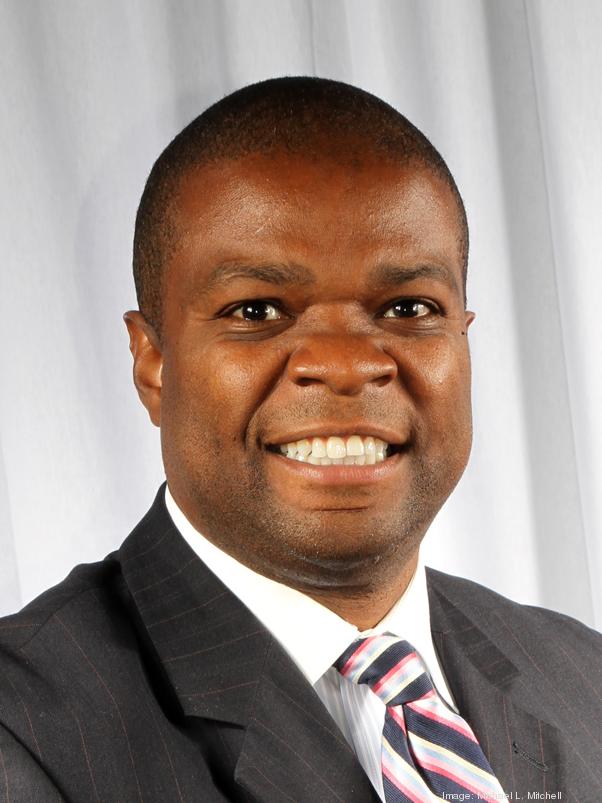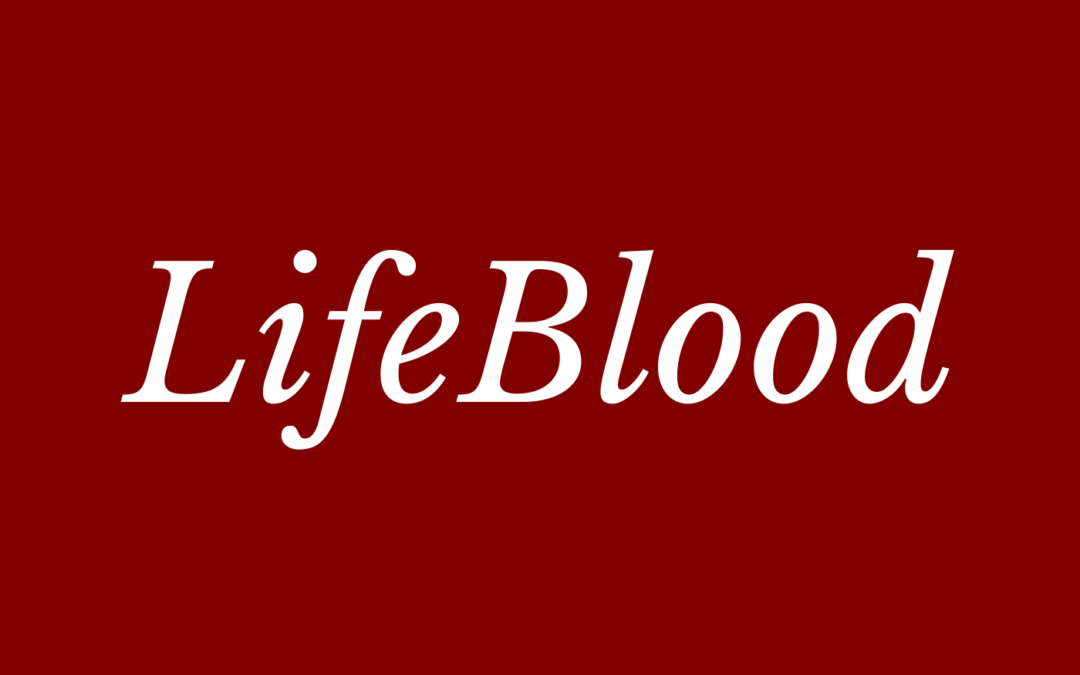Recruiting Best Practices with Yvan Demosthenes
Using the right technology but still not getting the recruiting success you’re looking for? Yvan Demosthenes shares his expertise and recruiting best practices for how an integrated approach can improve your outcomes!
Listen to us On
About the Episode
LifeBlood: We talked about recruiting best practices, how to utilize technology without losing the human element, the best source of new candidates, and how to fill those hard to fill positions with Yvan Demosthenes, CEO of HamiltonDemo.
Listen to learn why focusing your entrepreneurial journey on your area of expertise makes sense!
You can learn more about Yvan at HamiltonDemo.com, Facebook, Twitter and LinkedIn.
Thanks, as always for listening! If you got some value and enjoyed the show, please leave us a review wherever you listen and subscribe as well.
You can learn more about us at LifeBlood.Live, Twitter, LinkedIn, Instagram, YouTube and Facebook or you’d like to be a guest on the show, contact us at contact@LifeBlood.Live.

George Grombacher
Lifeblood Host

Yvan Demosthenes
Guest
Episode Transcript
george grombacher 0:00
Come on one of my blood This is George G. And the time is right welcome. Today’s guest is strong, the powerful Ivan Dummerston. Ivan, how you ready to do this?
Yvan Demosthenes 0:20
Yes, George. I’m ready. All right, let’s
george grombacher 0:22
let’s go. Ivan is CEO of Hamilton demo. They’re an organization sourcing game changing talent to help propel organizations forward. He’s spent over 20 years in professional sales and recruiting for some of the biggest organizations in the world. I’ve been excited to have you on tell us a little about your personal life’s more about your work and why you do what you do.
Yvan Demosthenes 0:44
Yet, George, thanks. So, you know, I like to start from the beginning. And my my parents are from Haiti, I was born in Haiti came to the United States as a as a baby, pretty much I was about 677 months old. And from there, we made our way from New York to Lima, Ohio. And for those of you that for those of your listeners that no Lima, Ohio, we all know that the center of the universe revolves around Lima, Ohio, feel like that’s right and true story. Hope was the best hamburgers you’ll ever have. It’s famous qB. And from there, I started school at the age of 17. At the University of Cincinnati, and I want to get that in because my Bearcats are killing it right now. We’re looking undefeated and looking forward to participating in the college football playoffs. And it’s it’s been a joy to watch them. And through the years of starting in college, I thought I was going to get go into med school, follow my father and, and get into the family business. I’ve got uncles and aunties, who are all physicians, surgeons, nurses. And, you know, one thing led to another and I found myself in sales. And from a career in sales, I started in the human capital, space, providing solutions to Fortune 500 companies to help recruit and provide products and services for their talent acquisition strategies. So from there, really embrace diversity, which, you know, with my background, being around, being around all these groups of people has always been a real fun thing for me, you know, the further away that that you come to meet me or you know, the more different you are, it, it’s always been more, more exciting for me to learn about people from different cultures from different places, etc. And about five, six years ago, I had the the great fortune to run into my business partner. His name is Shawn Hamilton, he is an Air Force veteran. And we just hit it off. And we had so much in common that we decided, hey, why don’t we just start a business and make this happen? Let’s do all the great things that we talk about and, you know, do do some good in the world. And we we pulled out the cocktail napkin and we we started creating a business plan. And George I’m sure you’ve never heard that before. Writing a business, cocktail napkin? Certainly not but story, it really happened. And we started Hamilton demo. And we are closing in on our fourth year. And George, let me tell you, it’s been magnificently busy, sometimes up and down with some struggles and challenges. But it’s been it’s been well worth the ride. We are growing. We just brought on two new people here in the past couple of weeks. So we’re up to six employees, we we have some opportunities that we’re going to be diving into and growing in 2022. So the future is definitely bright for us. And we appreciate everyone who’s helped us along the way our clients, strategic partners, and we’re just looking forward to continue doing some great things to close out this year and and take that into 2022
george grombacher 4:35
I love it. Go back cats go growth, go diversity, all positive things looking forward. So love it.
Yvan Demosthenes 4:44
Yes. Yeah, sure.
george grombacher 4:47
So anybody that’s that’s in business understands the value and really the necessity of being super mindful of our human capital and recognizing that the greatest asset sit in an organization are the actual people in the organization. And probably also recognize that if they’ve made a bad hire, just how costly that is, and the amount of time and money that it really takes. So making good selection decisions, so tell me a little bit about how you think about it, or just just your thoughts of recruiting and recruiting process or selection, just how how you think about that?
Yvan Demosthenes 5:26
Yeah, so there’s so there’s so much to dive into, right. So when I started in the space, George, I will tell you that companies knew that they had to invest every spare penny that they had, for their people, and to attract people, there was really, there was not a stone left unturned, or a resource that, that they didn’t explore, to attract talent to, to support their company and provide the the human capital that they needed. And I think right around the economic downturn that happened around the mortgage industry, in oh eight, we started seeing a little bit change of mindset and strategy where, rather than using multiple resources, they were really tried to companies as a whole, were really tried to use a magic bullet to solve their recruiting problems. And with that, Autumn is optimization has really accelerated where there’s a lot of reliance on it. So you’ve got a lot fewer recruiters doing a lot more work in relying on optimization. So it’s, it’s truly a new world. And in a lot of ways, the recruitment process, the sourcing process has become a lot easier. But in a lot of ways, it’s, it’s become more difficult to find those matches, you mentioned. Bad hire, right. And sometimes it’s just many times it’s a matter of, yes, someone is qualified, but they’re not a good organizational fit. And, you know, with, with organization, I shared with somebody, I came to the realization that you’ve got an imperfect system or technology, searching in screening, an imperfect document. So how many people go to school and learn how to create resumes and keep that skill sharp? Not many, as a matter of fact, the only time you use it is when you’re actually looking for a job where you’re applying for a job. Right. So you have an imperfect document that, in addition to that, may not even be customized to the role that you’re applying for. So imagine, George, how many candidates that would be that 100% fit, a great fit for your culture for your organization that you don’t ever really even touch or engage, because their resumes aren’t quite as as good of a match as another resume that somebody’s maybe a little bit more skilled, or maybe they just rewrote the the resume to fit the job description better than you did. So there’s a lot of moving pieces there. And what we do at Hamilton demo, we, we really try to go one step further and get to know the candidate. We’ve got a pretty deep network. So oftentimes, these candidates are either connected or even better, recommended to us by someone we know intimately. And with that, that brings us a lot of a lot of comfort, that we know that we can take these candidates to the next to the next step. So when you’re when you’re looking for professional and executive to place, you search for these individuals, then we can take them through our process of assessment, pre qualifying, etc. And then we like to, we also like to provide a little coaching. So before we even identify and engage the candidate, we’ve already spoken and research the company that we’re that we’re working for that we’re doing the search on their behalf. And we’ve we’ve zeroed in on three or four key elements that are really going to allow us to define a good match for for both parties.
george grombacher 9:56
Nice. I appreciate that. It is a it is The hard problem that we have the ability to now probably source the entire world for for a lot of positions, and we have the tools to be able to do it. And that’s, you know that that’s, that’s, that’s great, but just just double edged sword has coin has two sides kind of a thing. What is what is from your experience the best way for an organization to like like the best source? Is it? Is it screening resumes? Is it getting introduced to a potential new hire from an existing hire somewhere in the middle?
Yvan Demosthenes 10:35
Oh, yeah. So I think the tried and true is really using what you have at your disposal. And employee referrals are truly the best source, right? Those are, those are usually the golden ticket, your your employees, know, what it takes, who can fit, who will be a good fit in your organization, and who, who’s going to be qualified. So there’s no better pre screener than that. So I definitely feel that any organization that is looking for a continual pipeline of candidates should create and develop ploy an employee referral program that they can rely on, I think that goes without saying. And then from there, you know, there’s, again, there’s a lot of moving pieces, George, depending on what industry, you you’re in, the nuances of the roles that you have, you know, one tool or another could be better for you. But I do think in certain situations, I think where companies feel a lot of pain is when they they come to that hard to fill role. And when a role is hard to fill, it’s going to be hard to fill for anyone. But sometimes there, there’s a reason that you can uncover why, why that role is so difficult to fill. And it’s usually they’re simple. And, and I try not to make it too complex with, for example, it can be the job title. Sometimes the job titles just don’t match what you’re looking for. Maybe it’s your job description, and how and how you, you’re presenting that. And those, those are some good places to start in identifying how you can optimize your your ability to attract candidates, especially if you’re having a hard time. And then you could look also to are you really? Are you really using the resources that are going to help you fill your needs? Right. So why why do Why do a job board if your candidates only go to career fairs? And vice versa, for example.
george grombacher 13:14
So yeah, that certainly makes sense. There’s a
Yvan Demosthenes 13:17
lot. Yeah, there’s, there’s, there’s a lot there. And again, I, George, a lot of it sorry to keep talking but I, we tried to help give feedback and consult our clients as we go through this process as well. I’m a strong believer in doing our best not just to be someone that comes in and saves the day, but we want to be a trusted advisor as well. I truly believe as a good salesperson, if we can believe if we can create that trust will be not only will we be better off for it, but our clients will be better off for it too. So we try to give them feedback on what we see out there. And if those things come into play, if we realize that hey there, there’s something really glaring or obvious that they can make adjustments and and solve their problems we will tell them to because sometimes that happens. And we’re there to do whatever we can for them.
george grombacher 14:22
Yeah, I certainly appreciate that. And I like the idea of a trusted advisor. It strikes me that the more you can do that the more you can help an organization to take a more integrated role and to look at, you know, from start to finish, do you have that pipeline where you’re encouraging your employees to to be making referrals to potentially new candidate candidates and let’s talk about your entire process and all your titles and the roles and the responsibilities so that you actually have a process a human capital talent management process in place versus Hey, we need to hire somebody for this job. It seems like it seems like your approach makes more sense.
Yvan Demosthenes 15:06
Right. And one of the, one of the things that I always try to keep in mind, big company are small. Again, there, we have a lot fewer people doing a lot more work. You know, the, the recruiting industry is is full of people that keep their heads down all day long. They’re doing great work. They’re doing what they can. But you know, I, I’d like to say, when you keep it simple, if when you’re dealing with human beings, there needs to be a human being element and component to what you’re doing. You can’t rely, you can’t rely 100% on on a whole bunch of other things with out integrating the human components. So
george grombacher 15:56
hey, man. Yeah, well, the people are ready for your difference making tip? What do you have for them? It’s time.
Yvan Demosthenes 16:05
Yeah, good time. So I, you know, I, I’ll tell you, one of the things that someone told to me a long time ago, that really didn’t resonate with me until the past five, six years, is that when, when you want it there, when you want to go into business, there’s lots of us with the entrepreneurial spirit. And we help companies we help our neighbors, we help our families. And some of us want to go out and have our own adventure and start your own business. So when you’re thinking about the business that you want to go into, a lot of times you hear people tell you to do, to do what you love to do what makes you happy. And my my tip, in addition to that is, if you have a knowledge base, that you’re that you are an expert in, chances are that you’re going to be able to create some financial stability, and if all works out some wealth around your knowledge base. So for instance, I’ve been in this space for almost 20 years. And gosh, it took me it took me till five, six years ago to realize that I had a lot of knowledge around the human capital, recruiting talent acquisition space. And my expertise is has helped me tremendously. And so I would I would give to those that are trying to figure out what kind of business to get into, think about what you’re an expert in, and, and go for it.
george grombacher 17:56
One thing that is great stuff that definitely gets Come on. Like that. That’s really well said there. And I think that there’s a lot of wisdom in following what you love, but then also make sure that you’re capitalizing on the things that you are excellent and an expert at. Why Yeah, thank you so much for coming on. Where can people learn more about you? How can they engage with you and Hamilton demo?
Yvan Demosthenes 18:19
Yes, please. You can go out to Hamilton demo.com. Again, that’s Hamilton demo.com. And when you’re out there, our contact information is there. My email and phone number are also on the website. And it is my personal cell number. So I love to hear from people, especially those that are interested in learning more about what we do and possibly using our services. So please don’t hesitate. Or you can shoot us a note or send me an email directly.
george grombacher 18:56
Well that well if you enjoyed this as much as I did, show Ivan your appreciation and share today’s show with a friend who also appreciates good ideas go to Hamilton demo.com That’s hamiltondo.com Check out the grid resources you could find Ivan’s email and cell phone on the site and get in touch. Thanks good.
Yvan Demosthenes 19:19
Yeah. Hey, Jordan, one last thing I’m sorry for. For those for everybody out there. My business partner and I we created Hamilton demo as a certified veteran owned business. Were VBE through the Department of Veteran Affairs, so I forgot to share that with everyone. Thanks for let me get that in,
george grombacher 19:39
though that was percent and we are grateful for the service. So thank you for sharing. That that’s gonna happen. Thanks for watching, and until next time, keep fighting the good fight. We are all in this together.
Transcribed by https://otter.ai
More Episodes
Beyond the Bank Balance: Cultivating a Soulful Relationship with Money
You don’t need to be a Wall Street shark or a personal finance guru to develop a healthy relationship with money. In fact, most of us start with little more than a jumble of beliefs and habits passed down from our families. But if you’ve ever found yourself stressed...
How Using AI Can Help You Gain Clarity Into Your Financial Future
In today's fast-paced, data-driven world, achieving financial clarity can feel like an overwhelming task. With numerous financial decisions to make—from budgeting and investing to retirement planning and debt management—it's easy to feel lost in the complexity of it...
How AI Can Help Improve Your Personal Finances
1. Smarter Budgeting and Expense Tracking AI-powered tools like Mint, You Need a Budget (YNAB), and PocketGuard can automatically categorize your expenses, track your spending in real time, and even alert you when you’re about to exceed your budget. These tools...
Trust and Confidentiality When Using AI as Your Financial Coach: Safeguarding Your Sensitive Data
In the digital age, artificial intelligence (AI) has revolutionized many aspects of our lives, including personal finance. AI-powered financial tools have become a go-to resource for budgeting, investing, debt management, and even retirement planning. But as more...
How AI Can Be Your Personal Financial Coach: Unlocking the Future of Financial Success
In today’s fast-paced world, managing your finances can feel overwhelming. With so many options for saving, investing, and budgeting, it can be hard to know where to start or how to stay on track. Fortunately, advances in technology—specifically Artificial...
How Technology and AI Are Benefiting Investors and Consumers in Securing Their Personal Financial Futures
In recent years, the rise of technology and Artificial Intelligence (AI) has profoundly transformed the financial landscape. These advancements have empowered investors and consumers to make more informed, efficient, and personalized decisions about their financial...
10 Things New Parents Should Be Thinking About Regarding Their Personal Finances
Becoming a parent is one of the most joyful and transformative experiences in life. However, it also brings new financial responsibilities and challenges. If you’re a new parent or expecting, it’s crucial to plan ahead to ensure your family’s financial security. Here...
10 Things Newlyweds Should Be Thinking About Regarding Their Personal Finances
Marriage marks a new chapter filled with excitement and partnership. While love may be the foundation, financial harmony is key to building a stable and happy life together. To set yourselves up for success, here are 10 essential financial topics that every newlywed...
Financial Tips for New Parents: Building Stability and Security for Your Growing Family
Becoming a parent is one of life’s most rewarding experiences, but it also brings significant financial challenges. From diapers to daycare, the costs add up quickly. Whether you’re a first-time parent or adding to your family, managing finances wisely is crucial for...
Join the show.
Interested in being on the show? Tell me a little bit more about you and what you’d like to talk about!














